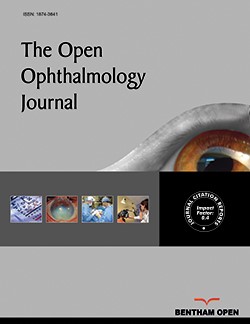All published articles of this journal are available on ScienceDirect.
Topical Prostaglandin Analogues and Conjunctival Inflammation in Uveitic Glaucoma
Abstract
Purpose:
A pilot study to determine whether topical prostaglandin analogues alter the expression of conjunctival inflammatory markers in patients with uveitic glaucoma.
Methods:
Prospective, single-masked case series of 20 patients with uveitis and secondary raised intraocular pressure. Participants were divided into four groups of five patients dependent on their use of topical medication: (1) prostaglandin analogues only, (2) corticosteroids only, (3) both prostaglandin analogues and corticosteroids, (4) no topical medication. Conjunctival cells were harvested by impression cytology and were examined for inflammatory markers (CD3, CD54, HLA-DR, CCR4, CCR5) by flow cytometry. A tear fluid sample was also examined for inflammatory cytokines (IL-12p70, IL-2, IL-10, IL-8, IL-6, IL-4, IL-5, IFN-gamma, IL-1beta, IFN-alpha, IFN-beta) by multiplex bead arrays.
Results:
All groups demonstrated increased markers of conjunctival inflammation. There was no significant difference in levels of any inflammatory markers between the four groups, suggesting that the use of topical prostaglandin analogues does not increase conjunctival levels of inflammation beyond those already seen in uveitis.
Conclusions:
The use of topical prostaglandins does not appear to induce conjunctival inflammation over that which is already present in patients with uveitic glaucoma. This supports the use of topical prostaglandin analogues in patients with uveitic glaucoma, indicating that their use is unlikely to adversely affect subsequent glaucoma filtration surgery through the induction of chronic conjunctival inflammation.


